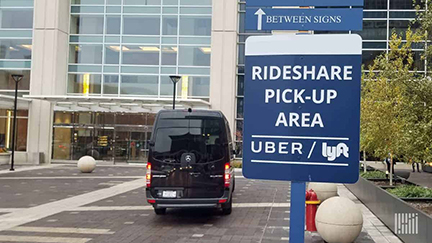By Ivan Sanchez
The U.S. Supreme Court’s 2022 decision in Viking River Cruises v. Moriana set a significant precedent favoring employers in enforcing mandatory arbitration clauses over California’s worker-protection laws. This week, the court is poised to consider petitions challenging California courts’ interpretation of the law’s compatibility with arbitration agreements.
Twenty years ago, California introduced the Private Attorneys General Act (PAGA), enabling workers to file lawsuits against employers for labor code violations. These “representative actions” allow employees to sue on behalf of the state, with monetary awards primarily benefiting the state and partially distributed among affected workers.
One such case involves Johnathon Gregg, an Uber driver in California, who filed a lawsuit alleging misclassification as an independent contractor rather than an employee under the PAGA. Despite Uber’s arbitration agreement, Gregg pursued legal action in state court. Uber contested, invoking the arbitration clause, but state courts ruled in Gregg’s favor.
Uber’s subsequent appeal hinged on the Viking River decision, asserting that the FAA mandates enforcing arbitration agreements, thus superseding state laws like the PAGA. However, California courts upheld Gregg’s right to pursue representative claims alongside individual arbitration.
In Lyft, Inc. v. Seifu, Lyft echoes Uber’s stance, challenging a California appeals court’s ruling allowing a driver to maintain a representative action under the PAGA while their individual claim undergoes arbitration.
The crux of the dispute lies in the interpretation of the FAA’s interaction with state laws. Uber and Lyft argue that Viking River emphasizes arbitration’s primacy in resolving disputes, suggesting that state courts cannot circumvent this by preserving representative claims under the PAGA.
Conversely, California courts maintain that workers’ rights to pursue representative claims are not negated by individual arbitration agreements. They contend that permitting arbitration for individual claims while pausing representative actions until arbitration concludes strikes a balance between federal and state laws.
The outcome of these petitions holds implications for workers’ ability to challenge labor code violations collectively. Increased desires by labor in many fields, including here in Tennessee, with attempts to unionize the auto industry and the service industry underscores the broader debate over the scope of arbitration agreements in the realm of employment law.
As the Supreme Court weighs these petitions, it faces American citizens that overwhelmingly disapprove of the Court’s rightward turn.
Copyright 2024 TNTRIBUNE, All rights reserved.


